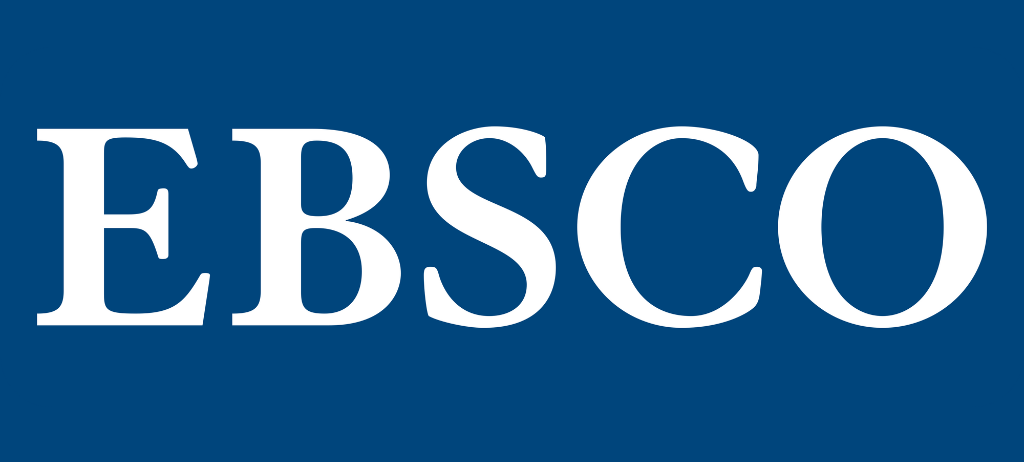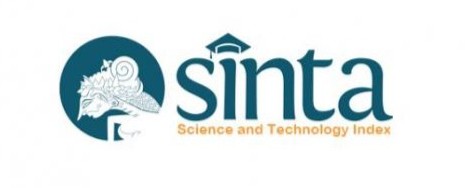- Focus and Scope
- Section Policies
- Peer Review Process
- Publication Frequency
- Open Access Policy
- Archiving
- Plagiarism Screening
- Publication Ethics
- Article Processing Charge
- Digital Archiving
Focus and Scope
Lakon : Jurnal Kajian Sastra dan Budaya is a peer-reviewed, open-access journal published by the Faculty of Humanities, Universitas Airlangga. LAKON focuses on various issues within literary and cultural studies in local, regional, and global issues. It invites original studies of theoretical, empirical or historical research articles which include but are not limited to everyday practices, identities, media, literary texts and cultural expressions.
Section Policies
Articles
Peer Review Process
Manuscripts submitted to Lakon journal will undergo a selection and assessment process by the Board of Editors to ensure their accordance with the writing guideline, focus, and scope, and that they are of excellent academic quality. The manuscripts will be reviewed using double-blind peer review method, meaning that the identities of both the reviewers and authors are concealed from each other throughout the review process. Authors should submit a signed anti-plagiarism statement letter.
Desk Review. At the desk review stage, manuscripts will be examined to ensure that they have met the writing guideline, focus, and scope with excellent academic quality. If they do not meet the conditions, the author will be allowed to revise their manuscript according to the given criteria. However, there is also the possibility that the manuscript will be directly rejected.
Peer review. When the manuscript has passed the desk review stage, it will then be delivered to two reviewers who are experts in the field of the submitted manuscript. As stated above, the review process is performed in a double-blind method, in which the reviewer's name is always concealed from the submitting author and vice versa. The review process will be done within one until three months. Manuscripts that did not successfully pass the desk review process will not proceed to this stage.
Reviewer's decision. The reviewers will provide the following recommendations:
- Accepted; means that the manuscript is acceptable for publication.
- Accepted with minor revisions; implies that the manuscript is acceptable for publication once it is revised in response to the reviewers' concerns.
- Accepted with major revisions; means that substantive inadequacies in the manuscript, such as data analysis, the main theory used, and rewriting of paragraphs, need to be revised.
- Rejected; means that the manuscript is not acceptable for publication or the given reviews relate to fundamental issues.
The reviewer's decision will be considered by the Board of Editors to determine the ensuing process of the manuscript.
Revision Stage. Once the manuscript has been received with notations of minor or major revisions, it will be returned to the author with a review summary form. For manuscripts accepted with major revisions, authors are allotted three weeks to revise. Whereas for manuscripts accepted with minor revisions, one week is allotted for revision. When returning the revised manuscript, the author is required to fill in and attach the review summary form.
Final decision. At this stage, the manuscript will be re-evaluated by the Board of Editors to ensure that the author has revised in response to the reviewers' concerns. In this final decision, the manuscript may still be rejected if the author did not seriously conduct the revisions necessary.
Proofread. Once the manuscript has been deemed acceptable by the Board of Editors, it will undergo a proofreading process to maintain linguistic quality.
Publication confirmation. At this stage, the final layout of the manuscript will be resent to the author to ensure that the content is in accordance with the author's writing. At this stage, the author may revise any typographical error found in the final manuscript. Once confirmation from the author is given, the Editorial Secretary will process the manuscript for online publication on the website as well as a print publication.
Publication Frequency
This journal is published twice in a year, i.e. June and November.
Open Access Policy
This journal provides immediate open access to its content on the principle that making research freely available to the public supports a greater global exchange of knowledge.

Lakon Journal is licensed under a Creative Commons Attribution-NonCommercial-ShareAlike 4.0 International License.
Archiving
This journal utilizes the PKP PN, LOCKSS and CLOCKSS systems to create a distributed archiving system among participating libraries and permits those libraries to create permanent archives of the journal for purposes of preservation and restoration.
Plagiarism Screening
The manuscript that submitted into this journal will be screened for plagiarism using Turnitin. Manuscript with similarity rate more than 20% will be returned immediately to the author(s).
Publication Ethics
Ethics Statement
Our ethic statements are based on COPE's Best Practice Guidelines for Journal Editors.

The editor is responsible for deciding which of the articles submitted to the journal should be published.
The editor may be guided by the policies of the journal's editorial board and constrained by such legal requirements as shall then be in force regarding libel, copyright infringement and plagiarism. The editor may confer with other editors or reviewers in making this decision.
An editor at any time evaluate manuscripts for their intellectual content without regard to race, gender, sexual orientation, religious belief, ethnic origin, citizenship, or political philosophy of the authors.
The editor and any editorial staff must not disclose any information about a submitted manuscript to anyone other than the corresponding author, reviewers, potential reviewers, other editorial advisers, and the publisher, as appropriate.
Unpublished materials disclosed in a submitted manuscript must not be used in an editor's own research without the express written consent of the author.
Peer review assists the editor in making editorial decisions and through the editorial communications with the author may also assist the author in improving the paper.
Any selected referee who feels unqualified to review the research reported in a manuscript or knows that its prompt review will be impossible should notify the editor and excuse himself from the review process.
Any manuscripts received for review must be treated as confidential documents. They must not be shown to or discussed with others except as authorized by the editor.
Reviews should be conducted objectively. Personal criticism of the author is inappropriate. Referees should express their views clearly with supporting arguments.
Reviewers should identify relevant published work that has not been cited by the authors. Any statement that an observation, derivation, or argument had been previously reported should be accompanied by the relevant citation. A reviewer should also call to the editor's attention any substantial similarity or overlap between the manuscript under consideration and any other published paper of which they have personal knowledge.
Reporting standards
Authors of reports of original research should present an accurate account of the work performed as well as an objective discussion of its significance. Underlying data should be represented accurately in the paper. A paper should contain sufficient detail and references to permit others to replicate the work. Fraudulent or knowingly inaccurate statements constitute unethical behavior and are unacceptable.
The authors should ensure that they have written entirely original works, and if the authors have used the work and/or words of others that this has been appropriately cited or quoted.
An author should not in general publish manuscripts describing essentially the same research in more than one journal or primary publication. Submitting the same manuscript to more than one journal concurrently constitutes unethical publishing behaviour and is unacceptable.
Proper acknowledgment of the work of others must always be given. Authors should cite publications that have been influential in determining the nature of the reported work.
Authorship should be limited to those who have made a significant contribution to the conception, design, execution, or interpretation of the reported study. All those who have made significant contributions should be listed as co-authors. Where there are others who have participated in certain substantive aspects of the research project, they should be acknowledged or listed as contributors.
The corresponding author should ensure that all appropriate co-authors and no inappropriate co-authors are included on the paper, and that all co-authors have seen and approved the final version of the paper and have agreed to its submission for publication.
Disclosure and Conflicts of Interest
All authors should disclose in their manuscript any financial or other substantive conflict of interest that might be construed to influence the results or interpretation of their manuscript. All sources of financial support for the project should be disclosed.
Fundamental errors in published works
When an author discovers a significant error or inaccuracy in his/her own published work, it is the author's obligation to promptly notify the journal editor or publisher and cooperate with the editor to retract or correct the paper.
Article Processing Charge
Jurnal Lakon does not have any submission charge and publication charge for the author(s) who interested to publish their article in Jurnal Lakon. The article processing charge in Jurnal Lakon is free.
Digital Archiving
This journal utilizes the GARUDA (Garba Rujukan Digital) system to create a distributed archiving system among participating libraries and permits those libraries to create permanent archives of the journal for purposes of preservation and restoration.




.png)














